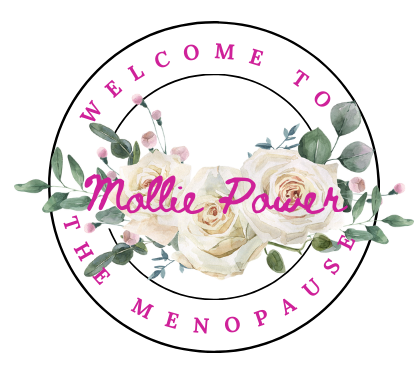 Menopause is a significant life transition that affects women both physically and emotionally. When coupled with the complexities of divorce, the challenges can become even more profound. In this article, we’re going to explore the intersection of menopause and divorce, shedding light on the changes and hurdles that may arise during this sensitive period.
Menopause is a significant life transition that affects women both physically and emotionally. When coupled with the complexities of divorce, the challenges can become even more profound. In this article, we’re going to explore the intersection of menopause and divorce, shedding light on the changes and hurdles that may arise during this sensitive period.
Menopause isn’t just about the end of menstruation; it’s also about the beginning of a new phase of life. Typically occurring in a woman’s late 40s or early 50s, this natural biological process signifies a significant shift in hormonal balance, which can trigger a symphony of changes within the body and mind. Hot flashes, mood swings, sleep disturbances, and a host of other symptoms can become part of daily life.
Now, combine that with the emotional toll of divorce. Ending a marriage can turn anyone’s world upside down, prompting intense emotional stress, changes in living arrangements, financial upheaval, and a whole lot more. For women going through menopause simultaneously, this can intensify stress levels to an even greater degree, making self-care and support networks crucial.
That’s why it’s imperative to embrace these transitions with wisdom and compassion. Don’t worry too much about trying to maintain the status quo. Instead, prioritize your well-being and acknowledge that you’re navigating a major life shift. This isn’t just about overcoming challenges; it’s about transforming them into opportunities for growth and new beginnings.
In this critical time, stress-reducing activities such as yoga, meditation, or regular exercise can be extremely beneficial. They can help manage menopausal symptoms and provide a much-needed outlet for stress relief during the upheaval of divorce. And as we segue into the next section, we’re going to delve deeper into these physical changes and provide actionable tips to manage your well-being during this transformative period.
Managing the Menopausal Maze While Separating
Navigating the menopausal phase while going through a divorce can feel like walking through a maze with no obvious way out. Menopause, typically striking in the late 40s to early 50s, can spur a host of physical changes. Suddenly, your body seems to rewrite the rules overnight. Hot flashes might sneak up on you at the most inconvenient times, mood swings can become your uninvited guests, and the sweet sanctuary of sleep may seem like a distant memory.
To mitigate these intense changes, it’s imperative to put your well-being first. I’m going to suggest incorporating stress-reducing practices into your daily routine. Yoga, with its focus on fluid movements and mindful breathing, can calm your nervous system. Meditation offers a respite from the stress of divorce, giving you a tranquil space to regather your thoughts. Regular exercise isn’t just beneficial for your physical health; it’s also a proven mood booster.
I’m here to tell you that maintaining an even keel emotionally is just as crucial as managing the physical quirks of menopause. It’s essential to acknowledge that your hormonal shifts will cause intense emotions, and that’s okay. Divorce is tough, menopause is tough, and together, they’re a formidable pair. You can always adjust your approach down the road, but right now, focus on what centres you and brings peace during all the chaos.
Now, seeking support is not a sign of weakness, but a strategy I like to use. You should do the same. Open up to friends, family, or a professional counsellor. This type of emotional outlet is instrumental in untangling the complex feelings that go with menopause and divorce. Choose something that resonates with you, be it a heart-to-heart with an old friend or professional therapy sessions.
Transforming Relationship Dynamics and Self-Identity
Menopause and divorce can feel like concurrent storms, each stirring the pot of your daily life and relationship dynamics. I’m not going to sugar coat it; weaving through these changes is tricky. It’s about altering how you connect with others and witnessing shifts in long-standing relationships.
In this phase, you might notice tensions or misunderstandings cropping up more often with your partner. These strains are often due to the physical and emotional overhauls that menopause brings, coupled with the stress and heartache of divorce. That’s the point where open communication becomes your life raft.
Consider counselling – it’s not an admission of defeat but a proactive tool to foster understanding. Both you and your partner can receive help from neutral grounds to voice concerns and navigate your evolving relationship. Keep in mind; it’s essential for both parties to feel heard and validated, especially when going through significant life changes.
Divorce, while closing a chapter, also opens the gates to self-discovery. Strip away the labels of spouse or partner, and you have a canvas for reinvention. This could be your moment to question and redefine roles you’ve held for years. Who are you outside of these roles? What ignites your passion? Now’s the time to explore.
It’s perfectly fine if your first attempt to redefine yourself isn’t a slam dunk. Your self-identity will evolve as you try new activities, revisit old hobbies, or even take that painting class you’ve always thought about. opt for things that resonate with you, that make you feel like the you that might have been on pause.
As you’re sifting through these shifts, you’re essentially shedding old skins, leading you to your next ‘you’. Embrace it. There’s no universal roadmap here; your journey is uniquely yours. The key takeaway? Prioritise what makes you content. Surround yourself with people and experiences that celebrate this emerging version of yourself.
Charting a Compassionate Path Forward

Navigating the intertwined paths of menopause and divorce isn’t for the faint of hearted. It’s a journey that’s as intricate as it is introspective. I’m here to help you with actionable steps and emotional support as you move towards a future marked by personal growth and emotional resilience.
In my opinion, seeking professional guidance is one of the wisest moves you can make. Healthcare professionals can offer tailored advice for managing menopause symptoms, while legal experts can safeguard your rights during a divorce. This dual-strategy approach ensures that you’re taking care of both your physical and legal well-being.
Don’t worry too much about creating the perfect support network overnight. Start by surrounding yourself with friends and family who love uplift you. Engaging with people who have weathered similar storms can be incredibly empowering. You can always adjust your approach down the road, expanding your circle to include support groups or communities that focus on menopause and divorce.
I really hope that you recognise the immense strength within you. It’s natural to feel overwhelmed when navigating significant life transitions like these but remember—you’re not alone. With thoughtfulness and an open heart, you can seize this opportunity to gain experience, grow, and ultimately emerge stronger.
Welcome to the Menopause, (welcometothemenopause.com) is here to offer support every step of the way. If you have questions or need more resources, don’t hesitate to reach out. The road ahead may have its share of difficulties, but with the right tools and a compassionate perspective, your next chapter could be one of the most fulfilling yet.
Your Story Matters! Share Your Experience
Dear Welcome To The Menopause family,
We’re all about sharing stories here, and we want to hear yours! After diving into our latest post, we’re eager to know how it resonated with you. Did you relate to a particular point? Maybe you have your unique take on the topic?
Let’s make this space a hub for diverse experiences. Drop a comment below and let’s spark a conversation. Your voice matters, and we can’t wait to read your insights!
Cheers to sharing and connecting!
